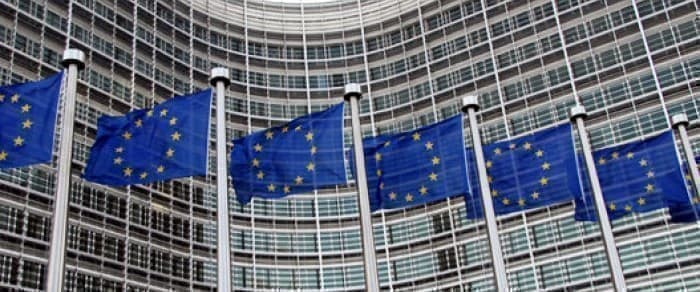While the equity and oil markets cheered on Tuesday the historic deal that European Union leaders sealed to assist Europe’s recovery from the pandemic, European lawmakers, economists, and climate activists criticized the cuts to funds for climate-friendly policies and called for specific targets toward achieving the EU’s ambitious Green Deal goals.
Following five days of negotiations and disagreements over how much and under what conditions EU states would get loans and/or grants for economic recovery, the leaders of the 27-member bloc finally clinched a deal for the EU’s budget for the next seven years and on a recovery fund to help countries bolster their economies ravaged by the pandemic.
At the first in-person summit in Brussels since the pandemic hit, the EU leaders agreed on an overall budget of US$2.1 trillion (1.824 trillion euro), which includes the 2021-2027 budget of US$1.24 trillion (1.074 trillion euro) plus an extraordinary recovery effort known as the Next Generation EU (NGEU) of US$865 billion (750 billion euro).
For the first time, the EU stipulated that part of the budget should be allocated to green policies and advancing the energy transition—30 percent of the total expenditure from the seven-year budget and Next Generation EU will target climate-related projects, in line with the EU’s objective of climate neutrality by 2050, the EU’s 2030 climate targets, and the Paris Agreement.
This means that the EU will potentially invest more than US$572 billion (500 billion euro) in green policies, initiatives, and projects. Related: EIA: Oil Demand To Hit Pre-COVID Levels In 2021
According to economists and climate activists, this is not enough to align the EU’s policies and economies to climate neutrality by 2050. The commitment, according to activists, also lacks specificity.
Even the European Parliament’s negotiating team criticized the compromise cuts in some areas, including in healthcare, research, and climate goals.
EU citizens want “more European solidarity, more European action in public health, in research and digitalisation, youth, and in the historical fight against climate change. Key programmes to reach these objectives have been considerably shrunk, and lost most of their top-ups under Next Generation EU,” the negotiators said in a statement.
One of those negotiators, Rasmus Andresen of the Greens/EFA Group in the European Parliament, tweeted before the deal was reached while cuts to those programs were debated, “Dear European citizens, Please remember at your next national elections that your stateleaders are the ones cutting research, youth programmes, digital and the social ecological transformation.”
Henrik Enderlein, President and Professor of Political Economy at the Hertie School as well as Director of the Jacques Delors Centre in Berlin, commented on the proposed cuts to healthcare, research, and climate transition: “This is not frugal. This is stupid.”
A recent study carried out on behalf of German think tank Agora Energiewende showed that the EU will need as much as US$2.767 trillion (2.4 trillion euro) in investments in the building, transport, power, and industrial sectors to achieve the current European climate targets. Even in the most optimistic scenario, the green investment in the EU budget – as it was proposed before the EU leaders watered it down – would cover less than a third of the required investment, the study concluded. Related: Israel Moves To Capitalize On Massive Gas Reserves
Climate activists criticized the green stimulus package, saying that it still allows fossil fuels subsidies and still lacks specificity.
“The legislation for the ‘Next Generation EU’ does not specify how the new funds would contribute to achieving the set climate spending target. And subsidies for fossil fuels are still possible. Member States now need to draft spending plans fit for the climate crisis, and ban harmful measures such as investments in new fossil gas infrastructure,” Climate Action Network (CAN) Europe said.
Greenpeace EU climate policy adviser Sebastian Mang noted:
“European governments said they would deliver a green recovery plan from the covid-19 pandemic, but they have cut funding for health, research and climate, and failed to guarantee that public money won’t go to polluting industries. This means any good investment could be cancelled out by support for outdated industries.”
Greta Thunberg also criticized the green stimulus package:
“As expected the #EUCO resulted in some nice words, some vague distant incomplete climate targets nearly impossible to track and a complete denial of the climate emergency. As long as we keep playing their game on their terms this is all we'll get- the leftover breadcrumbs.”
By Tsvetana Paraskova for Oilprice.com
More Top Reads From Oilprice.com:
- Nat Gas Prices Crash As U.S. Exports Fall
- Where Will Bakken Oil Go When Pipelines Run Dry?
- $40 Oil Isn’t Enough For Saudi Arabia


















